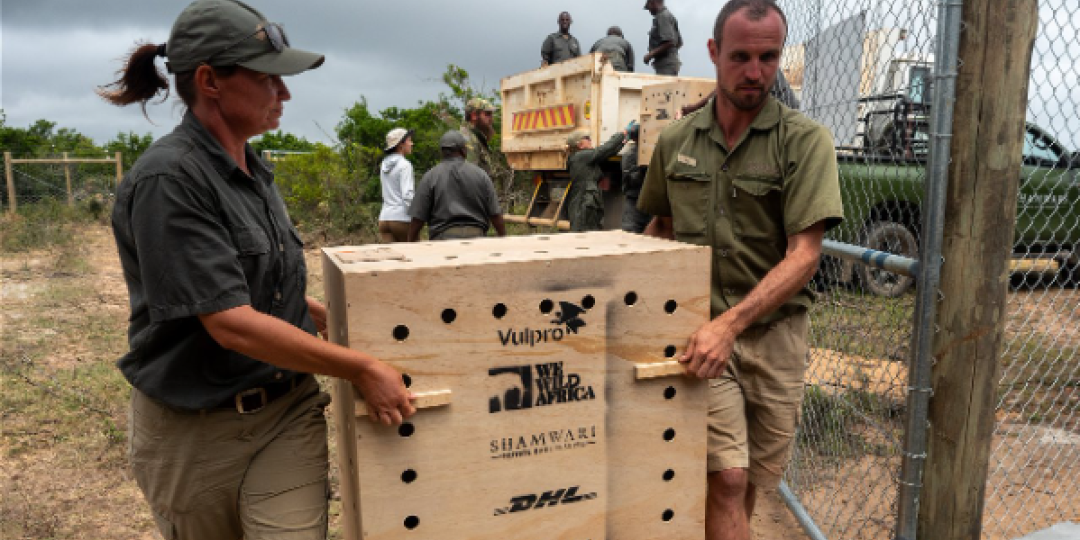Ample airflow and ease of access for cargo minders formed part of the logistical planning process when DHL recently moved 160 vultures from a breeding facility in Hartebeespoort to Shamwari Private Game Reserve in the Eastern Cape.
The trip of 1,042 kilometres on behalf of vulture conservationist VulPro and We Wild Africa, a non-profit organisation specialising in animal rewilding and translocation, was the largest transportation exercise of its kind in the world.
It took three hours to load the raptors into specially designed crates before they departed for their new home, an 18-hour journey during which the vultures were checked regularly.
The success of the undertaking has paved the way for a sequel later this year when breeding pairs of certain vultures will again be moved to Shamwari.
DHL’s participation in the relocation is part of a wide ecological exercise by which Shamwari intends to restore the indigenous fauna and flora of the 250 square kilometre reserve.
Professor Katja Koeppel from the University of Pretoria’s faculty of veterinary sciences managed the welfare of the birds, supported by Dr Johan Joubert, Head of Wildlife at Shamwari.
A recent study of the state of vultures in Africa contends that these birds of prey are at considerable risk from habitat conversion, prey-base depletion and extermination interference.
According to Project Vulture: “Vultures are deliberately poisoned by poachers who may use large quantities of toxic pesticides on elephant carcasses because circling vultures signal potential illicit activities to those who are combatting poaching.
“Vultures are killed because they play the role of sentinels.”
Five vulture species, including the White-backed, White-hooded and hooded vultures, are considered critically endangered.
The Lappet-faced or African king vulture is classified as endangered.













